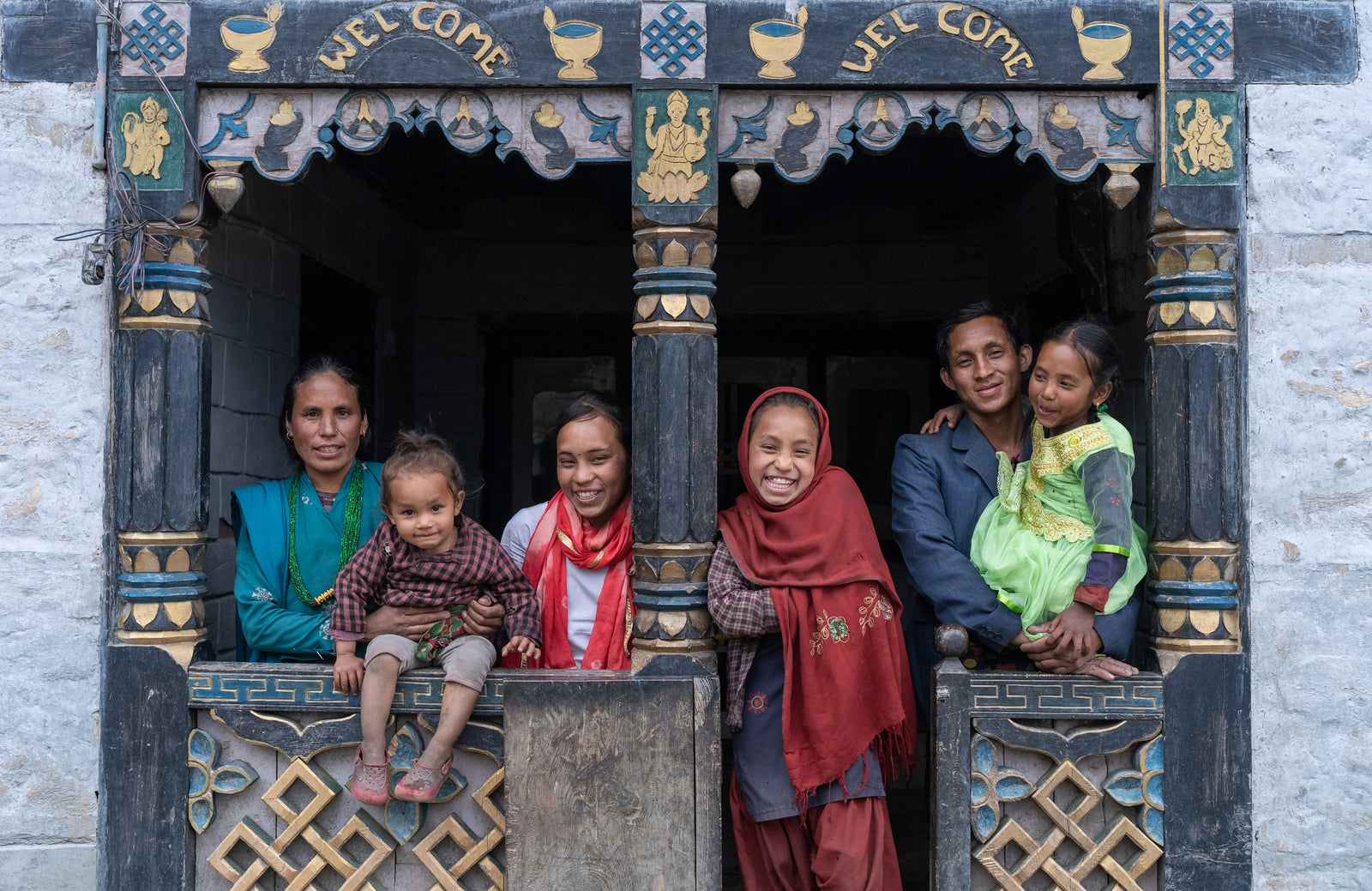Add description, images, menus and links to your mega menu
Add description, images, menus and links to your mega menu
A column with no settings can be used as a spacer
subjects
about us
Plaidoyer : Traite des êtres humains avec le Cirque Katmandou
|
Le théâtre comme puissante forme de sensibilisation. |
Localisation du projet District de Dang |
projet
| Numéro de projet | PNÉ 22-007 |
| Accompagné de | LIVRES POUR LE CHANGEMENT, Youth Foundation Nepal, Circus Katmandou, AMA Népal Espagne |
| Localisation du projet |
Dang, Népal |
| Nombre de bénéficiaires | Environ 3000 personnes (étudiants, enseignants, familles, représentants des autorités, membres de la communauté et des villages environnants.) |
| Se concentrer |
Plaidoyer
|
| Exigences de financement | 5 500 francs |
| statut | Complété |
Situation initiale
Le terme « Cirque Katmandou » fait référence à un cirque basé à Katmandou, la capitale du Népal. Kathmandu Circus est une entreprise sociale engagée à soutenir les victimes de la traite des êtres humains.
Le cirque a été fondé en 2001 et est composé d'anciennes victimes de la traite des êtres humains, notamment de jeunes femmes kidnappées ou vendues au Népal. Le cirque offre à ces femmes une plateforme pour développer leurs compétences de cirque, développer leurs talents artistiques et construire une vie indépendante.
A travers leurs performances au cirque de Katmandou, les artistes racontent leurs histoires et prennent position contre la traite des êtres humains. Ils utilisent l'acrobatie, la jonglerie, le talent artistique et d'autres techniques de cirque pour divertir leur public, mais aussi pour le sensibiliser à la réalité de la traite des êtres humains.
Le cirque de Katmandou a acquis une reconnaissance non seulement nationale mais aussi internationale. Les artistes ont participé à divers événements et festivals à travers le monde et ont utilisé la scène pour parler de leurs expériences et défendre les droits des victimes de la traite des êtres humains.
Grâce à leur travail au cirque de Katmandou, les anciennes victimes ont la possibilité de se réadapter, de développer leurs talents et d'accéder à l'indépendance économique. Parallèlement, le cirque contribue à lutter contre la stigmatisation sociale des victimes de la traite des êtres humains au Népal et sensibilise à ce problème.
Le Cirque de Katmandou est un exemple inspirant de la manière dont l’art et la culture peuvent être utilisés pour inspirer le changement social et soutenir les personnes en situation difficile.
Le plaidoyer implique la mobilisation de ressources, la collaboration avec des agences gouvernementales, des organisations non gouvernementales et d'autres parties prenantes concernées, et la sensibilisation du public à l'étendue et aux conséquences de la traite des êtres humains au Népal. Son objectif est d’influencer les décideurs politiques afin qu’ils promulguent et mettent en œuvre des lois et des politiques efficaces pour lutter contre la traite des êtres humains.
Grâce au plaidoyer, les voix des victimes sont entendues et leurs droits défendus. Il favorise l’accès aux mesures de protection, aux services d’accompagnement et à l’assistance juridique pour les victimes. Les initiatives de plaidoyer peuvent également viser à développer des mesures préventives pour renforcer les communautés vulnérables, améliorer les opportunités éducatives et promouvoir l’égalité des sexes.
En outre, le plaidoyer peut contribuer à promouvoir la collaboration et l’échange de bonnes pratiques entre différents acteurs afin de garantir une réponse globale à la traite des êtres humains. Elle œuvre pour que la lutte contre la traite des êtres humains devienne une priorité aux niveaux politique, social et international.
Dans l’ensemble, le plaidoyer joue un rôle essentiel dans la lutte contre la traite des êtres humains au Népal en sensibilisant, en favorisant le changement politique, en soutenant les victimes et en promouvant des mesures préventives. C'est un outil pour résoudre le problème, protéger les victimes et trouver une solution à long terme à ce problème social complexe et grave.
Explication de la traite des êtres humains au Népal
La traite des êtres humains au Népal fait référence au trafic illégal de personnes dans lequel les personnes sont exploitées par la tromperie, la coercition ou la violence. Le Népal est à la fois un pays d'origine pour les victimes de la traite des êtres humains et un pays de transit et de destination.
Les principales formes de traite des êtres humains au Népal sont l'exploitation sexuelle et le travail forcé. Les filles et les femmes sont particulièrement menacées et sont souvent victimes de trafic à l'étranger à des fins de prostitution. En outre, les hommes et les enfants sont souvent contraints au travail forcé dans des secteurs tels que la construction, l’agriculture, les ménages et les usines.
Il existe diverses raisons pour lesquelles le Népal est un pays vulnérable à la traite des êtres humains. Ces raisons incluent la pauvreté, le manque d’accès à l’éducation et aux opportunités d’emploi, les inégalités sociales, les conflits armés, les catastrophes naturelles et la corruption. Ces facteurs créent un environnement dans lequel les gens peuvent facilement être tentés d’émigrer et de faire de fausses promesses.
L’impact de la traite des êtres humains sur les victimes est dévastateur. Ils souffrent de violences physiques et psychologiques, d'abus sexuels, d'exploitation, de dégradation et de violation de leurs droits humains. De nombreuses victimes ont du mal à échapper à leur environnement d'exploitation et à trouver de l'aide. Ils sont souvent contraints de garder le silence par crainte de représailles ou de stigmatisation.
Le gouvernement népalais a pris des mesures pour lutter contre la traite des êtres humains, notamment en adoptant des lois plus strictes, en créant des unités spécialisées de maintien de l'ordre et en élargissant les mesures de soutien aux victimes. Cependant, la traite des êtres humains reste un défi complexe qui continue de nécessiter une attention, une collaboration et un plaidoyer considérables pour trouver des solutions efficaces et renforcer les mécanismes de protection.
Groupe cible
Environ 3000 personnes (étudiants, enseignants, familles, représentants des autorités, personnes de la communauté et des villages environnants.)
Objectif et impact du projet
|
|
|
Plaidoyer
Le plaidoyer est important pour aborder le problème de la traite des êtres humains au Népal car il pose une variété de défis et d'impacts. Le Népal est un pays d'origine, de transit et de destination pour la traite des êtres humains, en particulier l'exploitation sexuelle et le travail forcé. Il y a plusieurs raisons pour lesquelles le plaidoyer joue un rôle crucial dans la lutte contre ce problème :
-
Sensibilisation : le plaidoyer contribue à sensibiliser à la traite des êtres humains au Népal. De nombreuses personnes, y compris des victimes potentielles, peuvent ignorer les signes, les risques et les conséquences de la traite des êtres humains. Grâce à des campagnes éducatives, des formations et des activités de sensibilisation, le plaidoyer peut contribuer à accroître la sensibilisation des communautés et à éduquer les membres des communautés vulnérables.
-
Législation et politique : le plaidoyer peut contribuer à faire progresser l’élaboration et la mise en œuvre de lois et de politiques visant à lutter contre la traite des êtres humains au Népal. Cela peut attirer l'attention du gouvernement et des décideurs politiques sur le problème et les encourager à promulguer des lois efficaces qui améliorent la protection des victimes, punissent les contrevenants et soutiennent les mesures de prévention.
-
Soutien aux victimes : le plaidoyer peut se concentrer sur les besoins et les droits des victimes et garantir que des services de soutien appropriés sont fournis. Cela comprend la protection, les soins médicaux, le soutien psychosocial, l’assistance juridique et la réinsertion sociale des victimes. Grâce au plaidoyer, les victimes peuvent être informées de leurs droits et avoir accès à l’aide dont elles ont besoin.
-
Collaboration et coordination : le plaidoyer peut rassembler divers acteurs tels que des agences gouvernementales, des organisations non gouvernementales, des organisations internationales et des groupes communautaires pour développer des stratégies communes de lutte contre la traite des êtres humains. Grâce à une collaboration coordonnée, les ressources peuvent être mises en commun, les meilleures pratiques partagées et des mesures efficaces mises en œuvre.
- Prévention : Le plaidoyer peut promouvoir des mesures préventives pour lutter contre la traite des êtres humains au Népal. Il s’agit notamment de programmes visant à renforcer les communautés, à améliorer l’accès à l’éducation et aux opportunités économiques et à promouvoir l’égalité des sexes. La prévention peut mieux protéger les personnes à risque et dissuader les auteurs potentiels.
En conclusion, le plaidoyer joue un rôle important dans la lutte contre la traite des êtres humains au Népal en sensibilisant, en conduisant des actions politiques, en soutenant les victimes, en encourageant la collaboration et en prenant des mesures préventives.
|
|
|
|
Le théâtre comme moyen efficace de sensibilisation. |
Suscitez l’intérêt grâce à une programmation variée. |
|
Dépliant avec numéro d'urgence et coordonnées. |
Informations sur les signes et les facteurs de risque. |
|
Explication courte et concise sur la traite des êtres humains. |
Les graphiques et les images soutiennent le contenu. |
| Télécharger le dépliant I | Télécharger le dépliant II |
Personne de contact

Pranita Chettri
 pranita@booksforchange.org
pranita@booksforchange.org
En tant que co-fondatrice de BOOKS FOR CHANGE , je suis passionnée par l'égalité et l'éducation des enfants car je crois fermement que l'éducation est la clé d'un avenir meilleur. J'aime particulièrement améliorer la qualité de l'apprentissage en promouvant l'e-learning au Népal. Cela peut améliorer l’accès à l’éducation, accroître la qualité de l’éducation et accroître les chances des individus de réaliser leur plein potentiel.





 La coopération avec la police et les représentants des autorités constitue un élément important du programme.
La coopération avec la police et les représentants des autorités constitue un élément important du programme.  La police locale s'adresse aux étudiants et à la communauté pour renforcer les mesures de prévention.
La police locale s'adresse aux étudiants et à la communauté pour renforcer les mesures de prévention.






